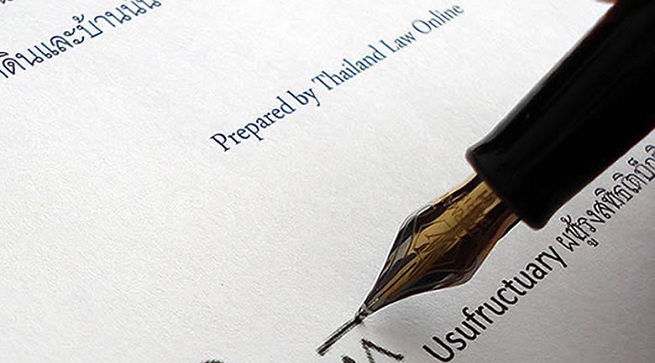Property Mortgages in Thailand

Property Mortgages in Thailand. In Thailand, mortgages are governed under a combination of civil law principles and financial regulations. Mortgaging property is a widely used mechanism for Thais to purchase real estate, while foreigners may face substantial restrictions under Thai land laws. Understanding the mortgage process—both in terms of legal structure and practical application—is critical […]
Escrow Accounts in Thailand

Escrow accounts in Thailand provide a secure financial mechanism for business transactions, ensuring that funds are held by a neutral third party until contractual obligations are met. While escrow services are widely used in international business, their use in Thailand is highly regulated and limited to specific circumstances under the Escrow Act B.E. 2551 (2008). […]
Last Will and Testament in Thailand

Creating a Last Will and Testament in Thailand is an essential step for both Thai nationals and foreigners who own assets or have legal interests in the country. A will ensures that an individual’s estate, property, and financial affairs are distributed according to their wishes upon death, preventing potential disputes among heirs. Thailand’s inheritance laws […]
Servitudes in Thailand

Servitudes in Thailand are a form of legal agreement granting one landowner the right to use another’s land for specific purposes. These agreements are crucial in land management, ensuring access, utility, and shared use of properties. Governed by the Civil and Commercial Code of Thailand, servitudes facilitate practical arrangements such as access roads, drainage systems, […]
Property Leasehold in Thailand

Property Leasehold in Thailand. Leasehold ownership is a widely used mechanism in Thailand, especially for foreigners seeking long-term rights to use land or property in a country where direct land ownership is restricted. The leasehold structure provides a legal framework for residential, commercial, and investment purposes, offering security and flexibility for those navigating Thai property […]
Litigation in Thailand

Litigation in Thailand is governed by the Civil and Commercial Code, Criminal Code, and Civil Procedure Code, addressing a range of disputes, including commercial, family, labor, and criminal cases. With a unique civil law system influenced by Western legal principles, Thailand’s litigation process requires a clear understanding of procedural rules and the Thai language, as […]
Title Deeds in Thailand

Title Deeds in Thailand. A title deed is an essential legal document that establishes ownership rights to land or property in Thailand. The type of title deed determines the extent of ownership and the rights the holder has over the property. Understanding the different types of title deeds is crucial when engaging in property transactions […]
Transferring Money to Thailand

Transferring money to Thailand is a common requirement for a range of purposes, from supporting family members and buying property to paying suppliers and conducting business transactions. Understanding the best methods, legal requirements, and financial considerations for international money transfers is essential, especially for those regularly moving funds across borders. Thailand offers a variety of […]
Usufruct in Thailand

Usufruct in Thailand. In Thailand, a usufruct is a legal arrangement that grants an individual the right to use and enjoy someone else’s property, typically land, without transferring ownership. This tool is especially popular among foreigners and expatriates who seek long-term rights to reside on or benefit from property in Thailand, where foreign land ownership […]
Private Investigation in Thailand

Private investigation in Thailand have become increasingly essential for individuals, businesses, and legal entities needing to uncover facts, verify information, or gather evidence in various matters. Whether it’s for personal, corporate, or legal purposes, private investigators (PIs) in Thailand offer a range of specialized services. This comprehensive guide delves into the types of private investigation […]
